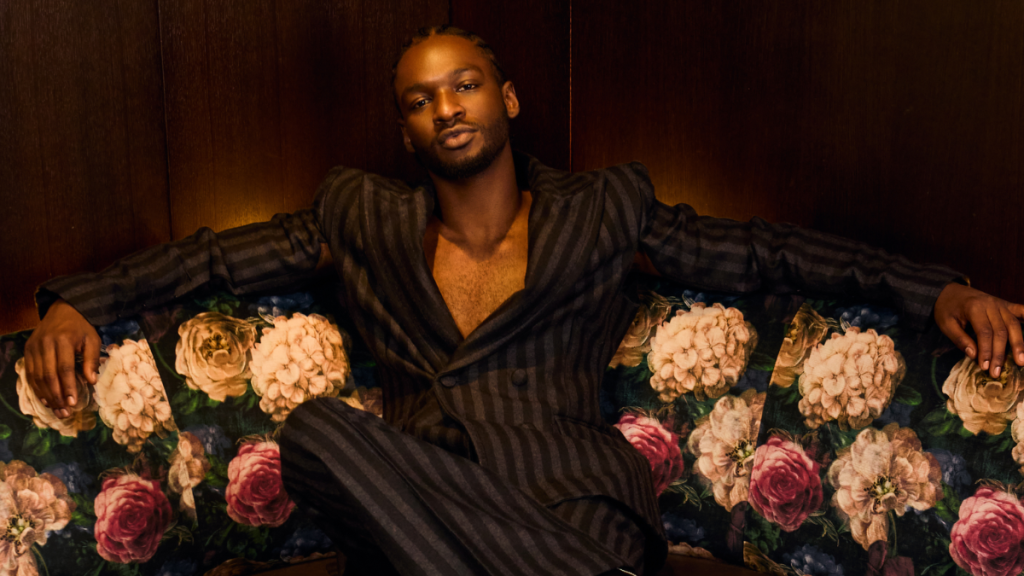Before Jay Will ever stood beside Sylvester Stallone, he was learning how to listen, how to find rhythm in silence, how to let a story move through him before saying a word.
You can see that awareness in every frame of Tulsa King, where Will’s character, Tyson, has evolved from driver to a steady, quietly powerful confidant.
“I’ve been working at this for a long time,” he says. “Nothing about it happened fast.”
That patience didn’t come from the industry; it came from home. Will grew up in Greenville, South Carolina, raised by his mother and grandmother, where his earliest lessons in artistic expression came through watching poetry in motion.
“My mom taught African dance, which was my first form of arts,” he says.
When Will left Greenville for the South Carolina Governor’s School for the Arts and Humanities, where his mother taught, it marked his first big leap toward something larger.
Will credits that experience with paving the foundation for his work ethic and focus as a technician. He takes no shortcuts and engages in no spectacle. He truly loves the craft.
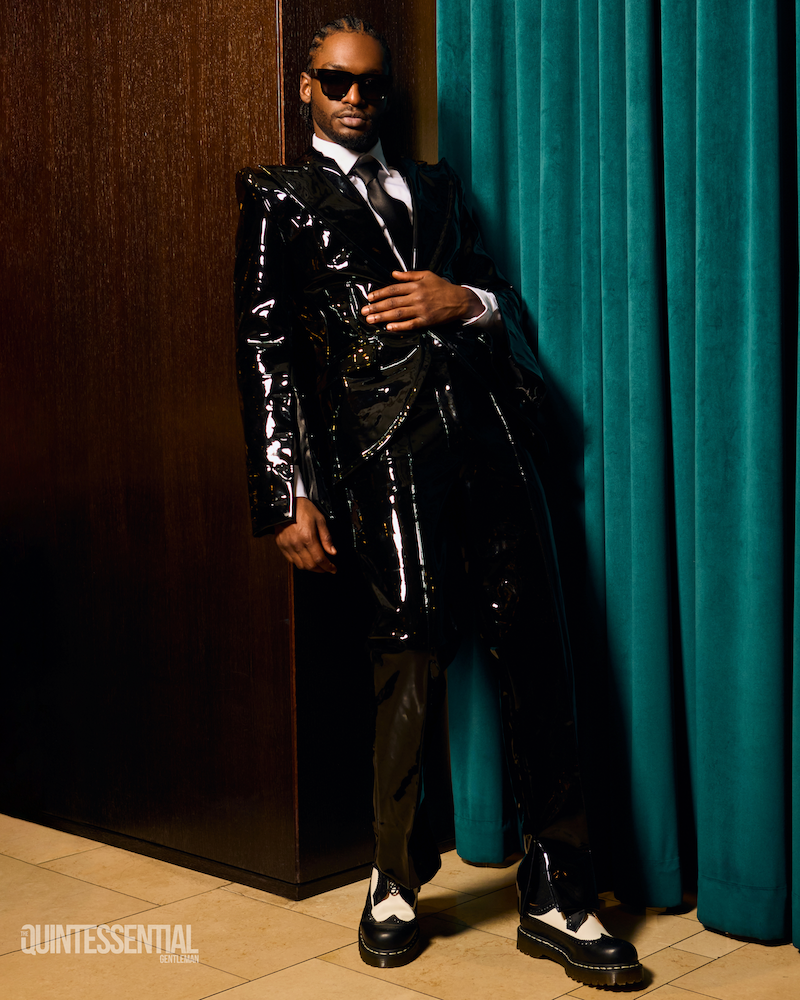
Full look: Landeros New York | Shoes: Dr. Martens
That commitment deepened at Juilliard, where he learned repetition and a healthy respect for the process.
For Will, Juilliard was less a credential or notch on a resume but more a forge. It burned away everything casual about his relationship to acting and replaced it with laser-like focus and intensity.
Those experiences stayed with him and have guided his journey ever since. He talks about the power of showing up and learning what discipline looks like before fame complicates things. The weight of his mother’s influence throughout it all is evident in his tone.
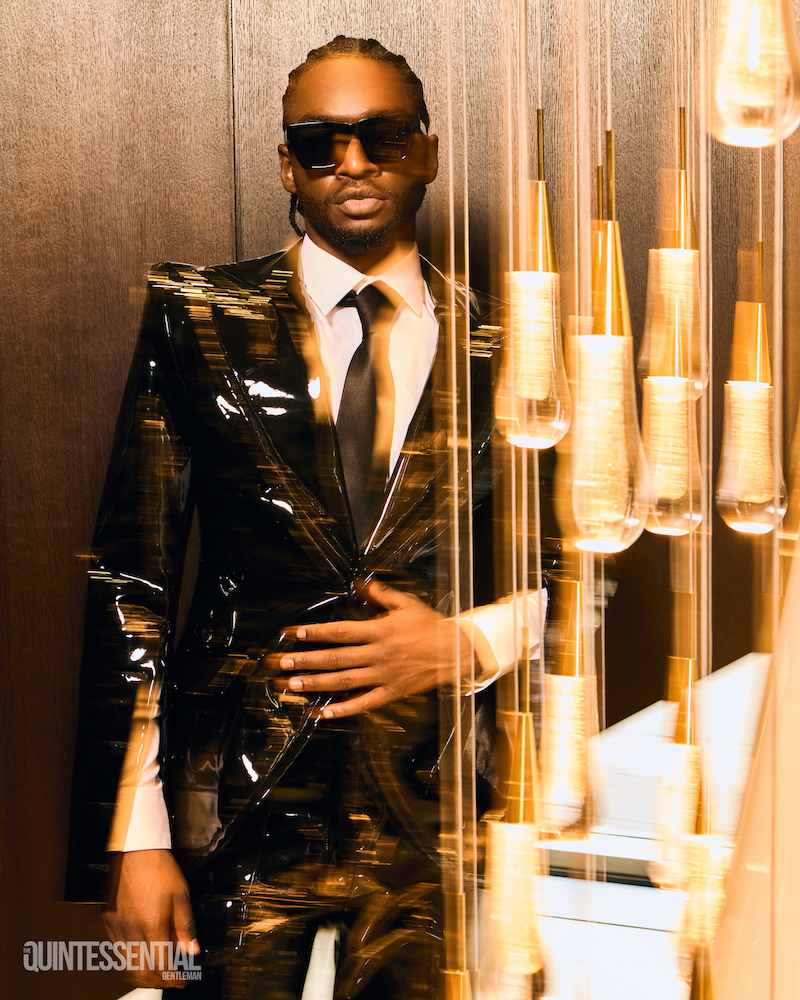
He laughs as he describes what precision looks like to him. “I look at a script sometimes and I just see letters,” he says. “I got to really get in it to really visualize the script.” That’s the kind of detail you don’t often hear from a young actor. It’s less about ambition and more about humility, about earning fluency in a language most people never learn to speak.
Years later, that same discipline followed him onto the set of Tulsa King. The show, created by Taylor Sheridan, is centered on loyalty and reinvention in unexpected places.
For Will, it’s another chapter in a life defined by work. He plays Tyson, the right-hand man to Stallone’s Dwight Manfredi, a role that mirrors his own evolution from observer to decision-maker.
“Sly… he’s everything,” Will says. “He’s like an acting coach, too.”
The respect runs both ways. Stallone encouraged Will to trust instinct over perfection, mirroring a practice Stallone has mastered over the years.
By the time Tulsa King reached its third season, Will was ready to lean into his instincts wholly.
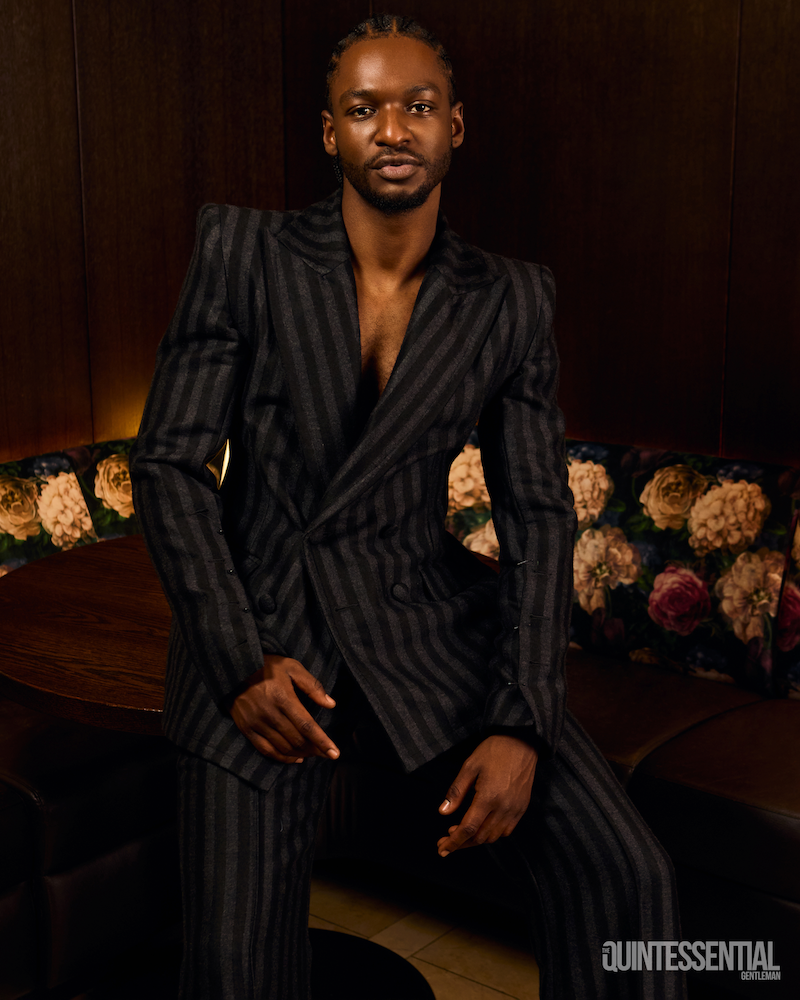
Full look: Landeros New York | Shoes: Alexander Hurley
“That’s why I’m excited about this one, because I said I’m going to do my thing,” he says. You can hear the growth in his delivery — measured and unhurried, grounded in technical ability rather than reliant on adrenaline and raw talent.
Some of that growth even shows up in how he approaches wardrobe and style. “They let me braid my hair,” he says, laughing. For him, those choices aren’t vanity; they’re part of character development.
Will’s relationship with rhythm has never left him. It’s the through line connecting movement, artistry and control.
“I jump rope every day for like 10 minutes,” he says. “Rhythm is in life.” The habit isn’t about fitness so much as focus. Each turn of the rope keeps time with something older and deeper, the lessons about balance and flow that shaped him long before cameras and scripts.
It’s how he resets between roles and how he stays in step with himself.
Music is another arena where Will’s appreciation for rhythm has manifested itself. He started writing verses in middle school, calling them poetry to keep them hidden.
Later, in New York, he produced beats and performed in small rooms, refining his process as a performer and learning how cadence, tone, and breath work could move a crowd the same way dialogue moves an audience.
“I don’t really separate the arts in my head,” he says. “I’m more of a conduit or a vessel.”
That idea, that art flows through him, defines how he carries himself on and off screen. He doesn’t chase attention; he chases truth.
“I spend a lot of time with people who don’t know me,” he says. “I’m with other musicians who don’t even sometimes know me. I really enjoy that.” It’s Will’s way of staying balanced and keeping his rising star in perspective.
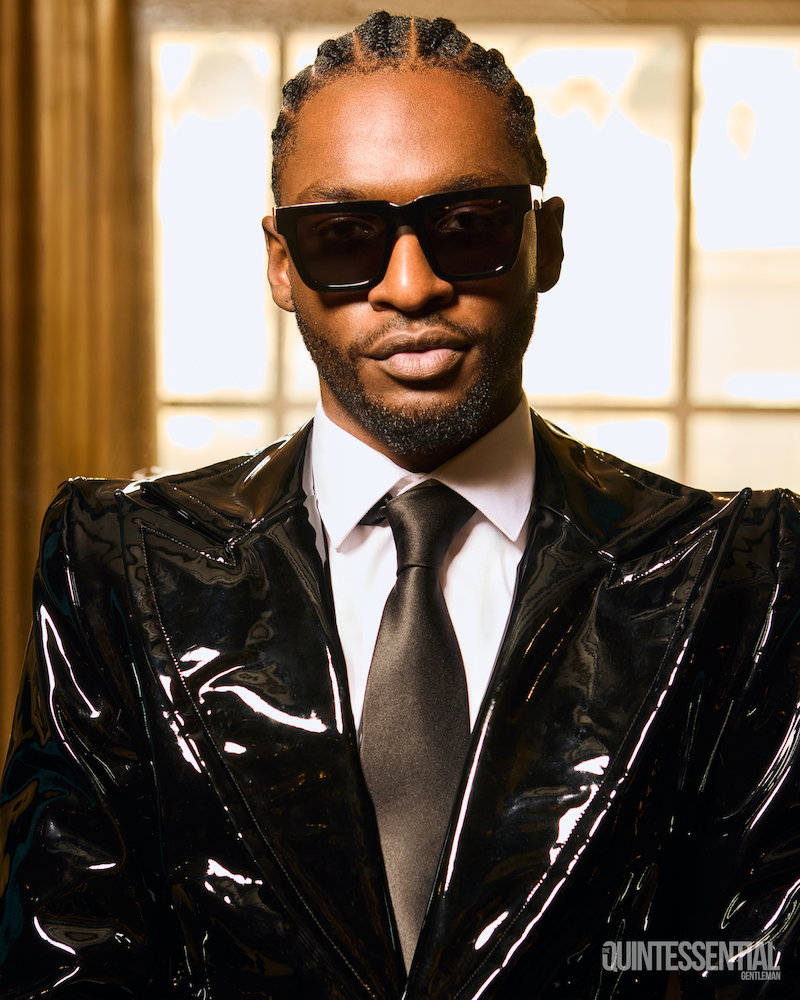
He jokes about his social media following, but you sense sincerity underneath. “I enjoy real life,” he says. “[Social media] is a whole different sport, man.”
That preference for presence over performance might be what makes Will stand out most. He’s not an influencer-turned-actor. He’s a trained performer who earned every inch of his momentum. The resume reads like a roadmap — Governor’s School, Juilliard, stage, television — each step intentional and driven by a tempo that has been building momentum for years..
Now, standing alongside Stallone in one of Paramount+’s most-watched dramas, Will feels both centered and hungry.
“I’m excited for the love,” he says. “I’m excited for the hate. If everybody’s agreeing, then I didn’t do my job.”
That awareness comes at a pivotal time for the series.
Tulsa King is expanding its world, with Samuel L. Jackson having joined the cast for Season 3 and preparing to lead the newly announced spinoff, NOLA King.
The addition has raised the stakes for everyone in the universe, including Tyson, whose loyalty and leadership will be tested in new ways. For Will, it’s an opportunity to keep growing within a story that’s still unfolding.
He’s aware that visibility comes with pressure, the kind that can either shape or shatter an artist. But he also knows what it took to get here, and that knowledge is its own kind of armor.
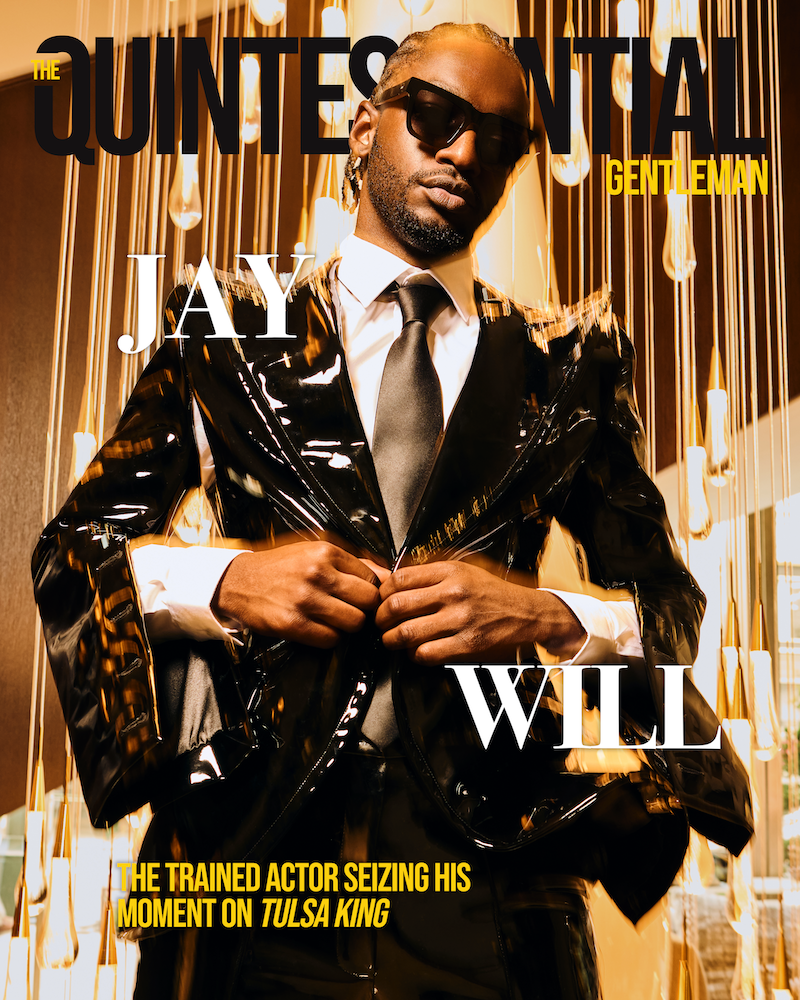
You get the sense that Will’s reflective, introspective nature allows him to learn from each of his roles.
As Tyson evolves into a leader, Will is simultaneously experiencing a transformation into a respected artist across a variety of mediums.
The path from Greenville to Juilliard to Tulsa King wasn’t linear, but it was intentional. It moved Will through rehearsal rooms, long days, and even longer nights, reinforcing his quiet belief in the idea that mastery still matters.
Viewers can catch Jay Will as Tyson in Tulsa King, with new episodes streaming Sundays on Paramount+.
Editor-in-Chief and Art Director: Eric Keith
Photographer: Lalo Torres
Photographer Assistant: Paul Terrie
Fashion Stylist & Creative Director: Mickey Freeman Represented by The Only Agency
Stylist Assistant: Kris Fraser
Fashion Assistant: Matiru Mwangi
Groomer: Megan Johnson
Videography: Lawrence Pitts
Graphic Designer: Pamela May
Publicist: Chanel Secreto


